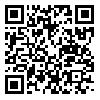Volume 6, Issue 1 (4-2013)
IJMEHM 2013, 6(1): 84-96 |
Back to browse issues page
Download citation:
BibTeX | RIS | EndNote | Medlars | ProCite | Reference Manager | RefWorks
Send citation to:



BibTeX | RIS | EndNote | Medlars | ProCite | Reference Manager | RefWorks
Send citation to:
Doomanlo F, Khodaparast A. Moral responsibility of the physician in response to the patient’s request for assisted reproductive technology. IJMEHM 2013; 6 (1) :84-96
URL: http://ijme.tums.ac.ir/article-1-5067-en.html
URL: http://ijme.tums.ac.ir/article-1-5067-en.html
1- Reproductive Biotechnology Research Center, Avicenna Research Institute, Tehran, Iran
Abstract: (8225 Views)
Professionals who provide assisted reproductive technology (ART) services may be approached by patients who have no chance of success of treatment, or can even be harmed during the requested futile treatment. In such cases, what is the moral duty of those who provide treatment services, in particular the physicians? Does the mere request on the part of the patient free the doctor from his/her professional moral responsibilities? On the one hand, principles of individual autonomy and beneficence require the doctor to provide the patient with necessary treatments regardless of the results and consequences. On the other hand, the principle of non-maleficence requires the physician not to impose any harm on the patient. In addition, due to the limitation of resources, doctors are obliged to allocate them to those patients who have a better chance of recovery and use them in cases in which the probability of resource waste is low. However, does this sit well with the principle of justice, especially where the patient is willing to pay all the costs of his/her treatment? Whose interest does the doctor have to prioritize, the patient’s, that of the child resulting from ART, or the society’s? Given the above points, moral training of the team providing treatment services seems necessary so that they acquire the essential skills to make the right decisions in difficult situations such as those mentioned above.
Type of Study: Research |
Received: 2013/06/21 | Accepted: 2013/07/6 | Published: 2013/07/6
Received: 2013/06/21 | Accepted: 2013/07/6 | Published: 2013/07/6
Send email to the article author
| Rights and permissions | |
 |
This work is licensed under a Creative Commons Attribution-NonCommercial 4.0 International License. |





